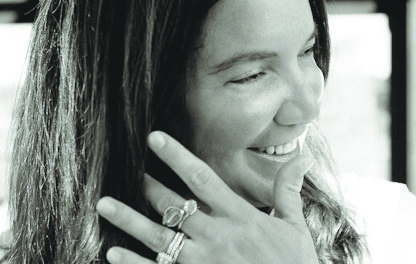The Saturday morning before Halloween, I opened the New York Times online, scanned a few headlines, then popped over to my favorite section of the paper, Opinion – are you surprised? – where I encountered the following headline: “The Pelosis and a Haunted America.”
The column, written by Maureen Dowd, featured a subheading that read: “Gruesome Republicans are writing our national horror story.”
Nothing like a big bowl of hyperbole with your morning coffee.
Granted, it was Halloween weekend, so Dowd was riffing on a theme. But the rest of the column revealed “gruesome” to be an accurate description of how Dowd – and most of her influential colleagues – view conservatives and, more specifically, Republicans.
Next, I opened my email and found yet another appeal for money from a candidate. I get them from both parties – are you surprised? – and this one came from a man I’d never heard of named Adam Laxalt, running for U.S. Senate in Nevada. (Nevada? Dude, I don’t even contribute to political campaigns in SC.) The email subject line read: “Good vs. Evil.” The candidate was dressed in full military garb, and proceeded to inform me that “friend, I believe our country is locked in a battle between good and evil.” I didn’t have to read much further to know that said “evil,” in his mind, is the Democratic party.
Again with the hyperbole. Tell me how you really feel next time, Adam!
I am writing this column several days before the mid-term elections. By the time you read it, the elections will have passed. As of today, I have no idea how they will go. And to be honest, I am finding it difficult to care.
I know that confession will horrify a lot of you. I know from my reading – and, of course, my inbox – that to many of you, this is “the most important election in history,” that you believe “our Democracy is under assault.” And I’m not even saying you’re wrong. I’m just saying I don’t believe this election – however it goes – can possibly fix what’s broken in American politics.
And when I say our politics are broken, I don’t mean it the way Maureen Dowd or Adam Laxalt or maybe even YOU mean it. I don’t mean that one political party broke our system, and only the other political party can fix it. That one party is an immoral threat to democracy, while the other party is honest and good. In fact, I believe that kind of talk – that simplistic binary perspective – is largely responsible for breaking American politics.
What to do about that? I have no idea. I’ve been writing about it for years, along with a lot of other like-minded (albeit marginalized) voices, and the situation’s only gotten worse. And I’m exhausted. I’m tired of trying to solve a problem that so few seem willing to look at under the hood. I’m tired of people who are smart enough to know better using language like “gruesome” and “evil” to describe their political opponents, as if there are no consequences to such talk. I’m tired of educated people acting if they’re completely unfamiliar with the concept of “self-fulfilling prophecy.”
In case you’re one of those people, here’s a short tutorial, from the all-knowing Google. “Self-fulfilling prophecy, also known as interpersonal expectancy effect, refers to the phenomenon whereby a person’s or a group’s expectation for the behavior of another person or group serves actually to bring about the prophesied or expected behavior.”
The self-fulfilling prophecy typically happens in five steps– again, according to Googe. 1) You form expectations of yourself, others, or events. 2) You express those expectations verbally or nonverbally. 3) Others adjust their behavior and communication to match your messages. 4) Your expectations become reality. 5) The confirmation strengthens your belief.
Take it from your friendly neighborhood columnist who has been closely watching “the scene” for over two decades now. You didn’t have to be a prophet to see this coming. And by “this,” I mean our broken American politics.
I have my own thoughts about how it started, and who’s more to blame than whom. (If you’re curious, buy me a drink next time you see me at Saltus and I might share my theory.) But at this point, it hardly matters. Both sides of our political spectrum are all in now. Quibbling about chickens and eggs is a waste of time. Besides, the blame game is a big part of how we got here in the first place.
I get so frustrated by this insane new political landscape, mainly because I don’t believe it was inevitable. We didn’t have to end up here. Sometimes I feel like saying “I told you so,” but that’s such an ugly, prideful emotion, I try to squelch it. Besides, “I told you so” doesn’t resonate with people who can’t recognize their own complicity in any negative situation. There is a certain type of person to whom you can repeatedly say, “you should probably stop beating your dog,” but he won’t, and when the dog finally bites him, he’ll blame the dog. And continue to beat the dog. And feel completely justified in beating the dog. (After all, the dog bit him!) This cycle leads nowhere good.
Anyway.
Despite the grouchiness on display here, I am not without hope. Not at all. I just don’t find it in our politics. Not anymore. Politics is necessary, and I will continue to support candidates who most align with my values, but I will no longer look to that realm for any kind of clarity, honesty, or inspiration. To those of you who still do, good luck and Godspeed. As for me, I’m looking elsewhere.
Speaking of which, I participated in the Pat Conroy Literary Festival last weekend, where I found hope in abundance! The entire weekend was exhilarating, but on Saturday night, when a bunch of locals bravely took to the stage to tell stories from their own lives, and the Beaufort Mass Choir belted out the gospel with enormous joy and passion – bringing us all to our feet, and many of us to tears – I remembered who we are. Who we can be.
While fretting over a way to finish this column, I began scrolling through my Facebook “memories” – Facebook is the scrapbook I was always too lazy to keep – and I came across some thoughts I posted six years ago, on November 2, 2016. Perhaps they will suffice:
“I just kind of lost it at choir practice. We started working on my favorite arrangement of ‘O Come, O Come, Emanuel,’ and this feeling just washed over me – part jubilation, part utter relief – when I realized that Advent is coming. It IS coming, y’all. And there’s nothing this election – this wretched thing – can do to stop it. ‘Rejoice, rejoice… Emanuel shall come to thee, O Israel.’ To those who wrestle with God (i.e. ‘Israel’), God will come. He did, and he does, and he will. And we have baseball, too.”







